#t s eliot portrait
Text
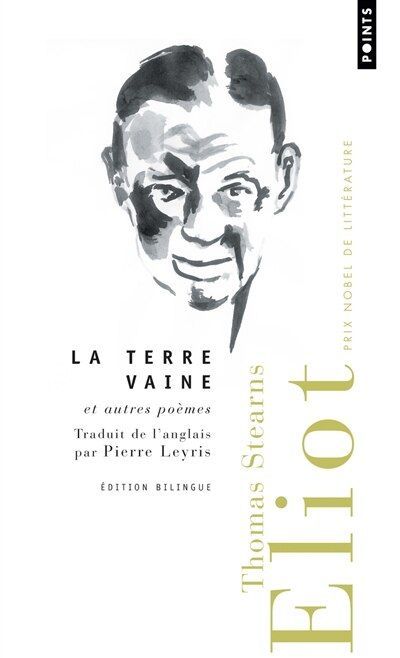
#tseliot#ts eliot#thomas stearns eliot#eliot#quote#poem#poems#thomas s eliot#t s eliot#t s eliot portrait#tseliot portrait#ts eliot portrait#thomas stearns eliot portrait#ts eliot poem#t s eliot poem#tseliot poem#thomas stearns eliot poem#tseliot poems#ts eliot poems#t s eliot poems
3 notes
·
View notes
Text
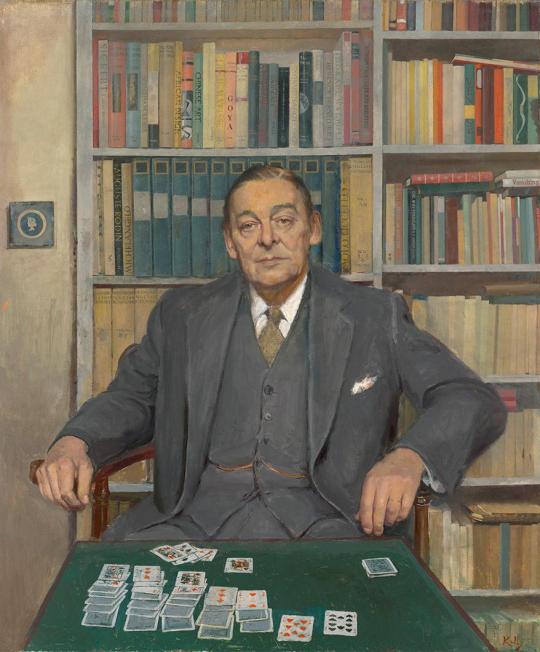
24 notes
·
View notes
Text
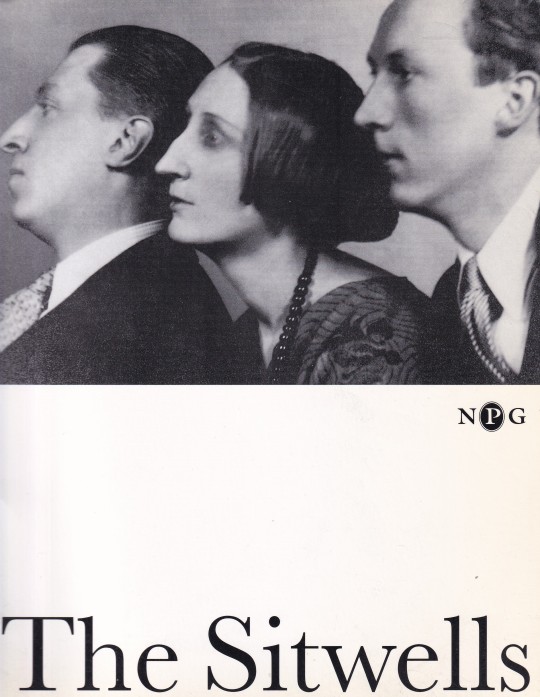

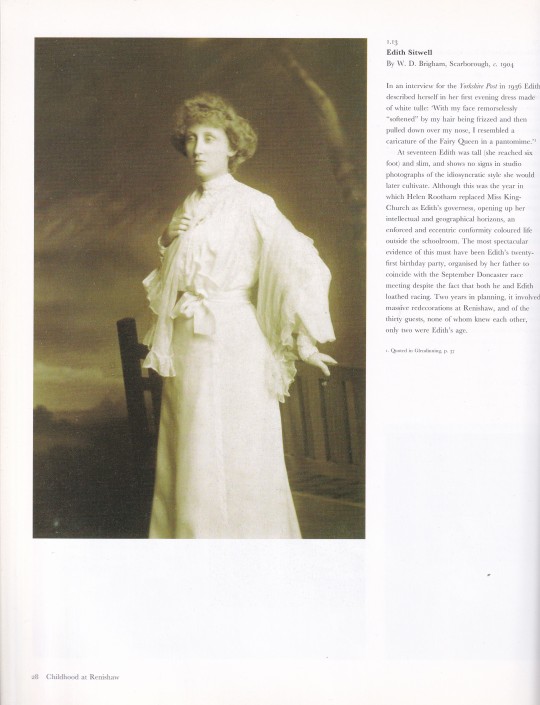
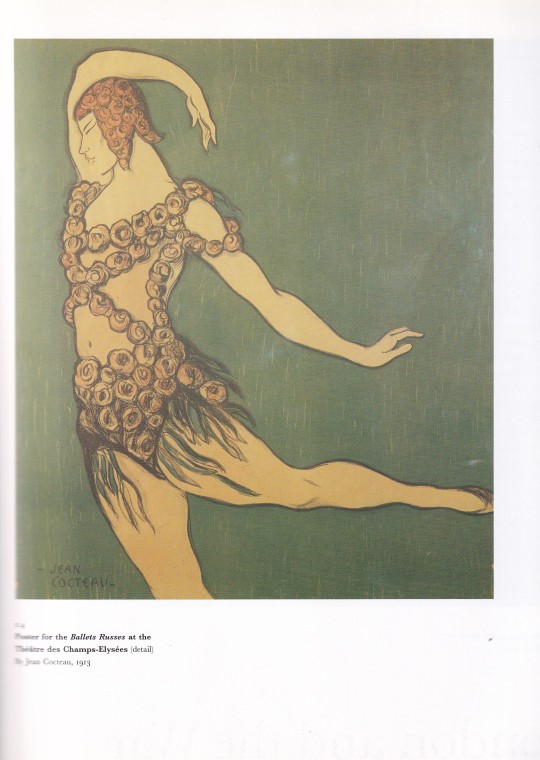
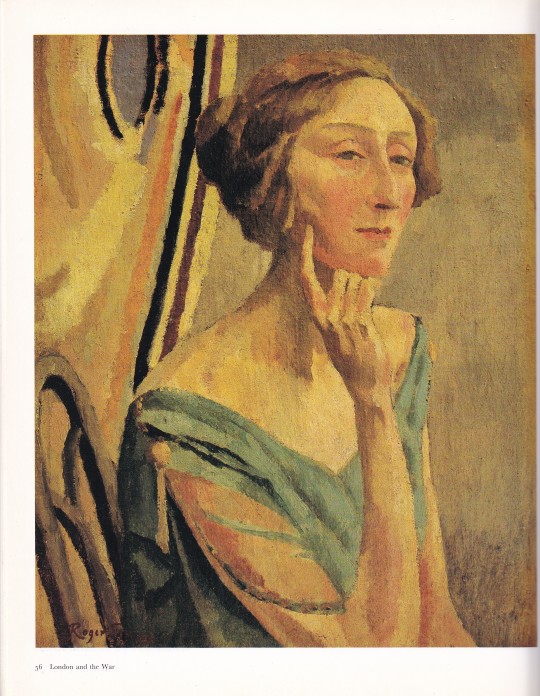



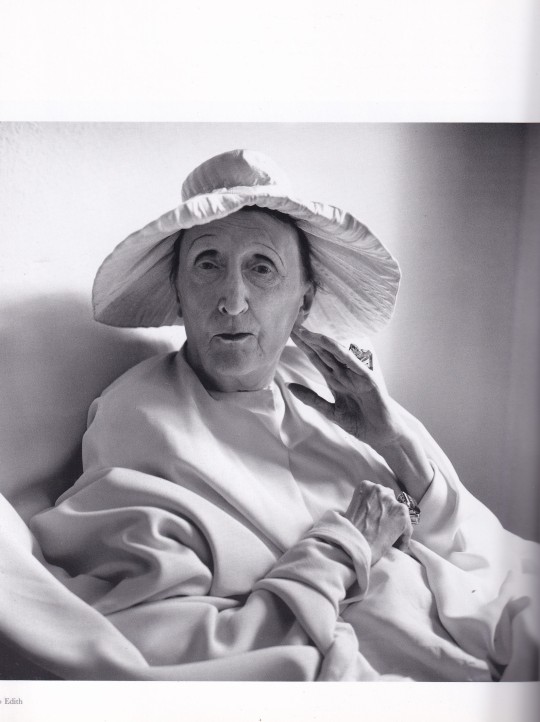

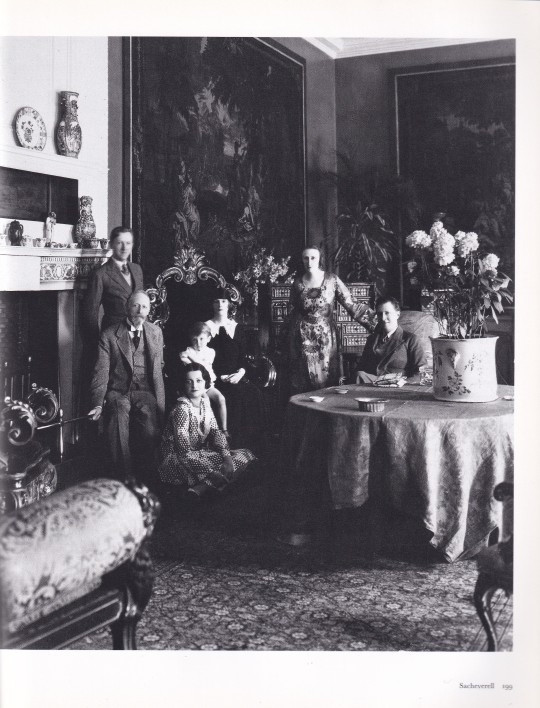
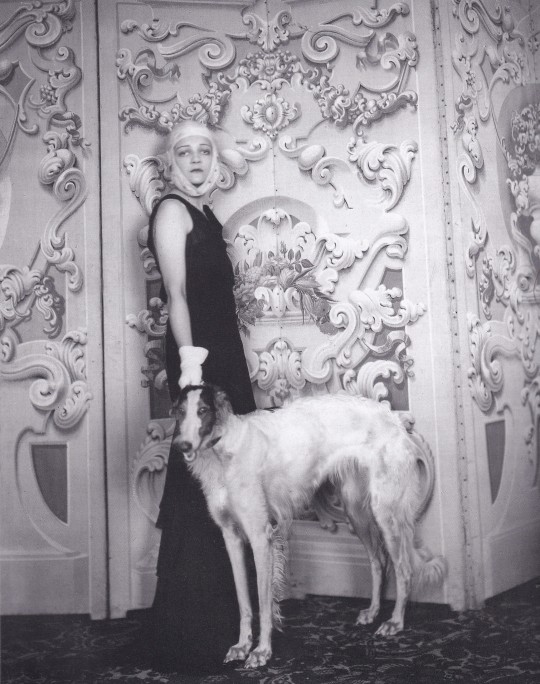
The Sitwells
Joanna Skipwith
National Portrait Gallery, London 1994, 240 pages, 22x27,5cm, ISBN 978 1855 141414, The 250 illustrations, 150 in color, include works by Cecil Beaton and Pavel Tchelitchew.
euro 50,00
email if you want to buy [email protected]
Published for the exhibition: The Sitwells and the Arts of the 1920s and 1930s, held at the National Portrait Gallery from 14 October 1994 to 22 January 1995.
'Battle is in the curve of their nostrils', wrote Arnold Bennett of the Sitwells. 'They issue forth from their bright pavilions and demand trouble.' Poets, patrons of the arts and ardent self-publicists, the three siblings, Edith, Osbert and Sacheverell, rarely missed an opportunity to promote themselves or denounce their sworn enemy, the philistine.
They were natural subjects, and targets for the media. Unconventional, aristocratic, physically imposing (all more than six feet tall), they were bold, talented and provocative, and there were three of them. This book celebrates their lives and their artistic crusade, which brought them into contact and conflict with many of the leading figures of the arts in the early part of this century. Gertrude Stein, T. S. Eliot, Dylan Thomas and Evelyn Waugh were among their friends; their favourite enemies included Wyndham Lewis, Noel Coward and D. H. Lawrence.
14/03/24
#The Sitwells#exhibition catalogue#National Portraits Gallery London 1994-95#Cecil Beaton#Tchelitchew#Sargent#Cocteau#Arts 1920s 1930s#fashionbooksmilano
19 notes
·
View notes
Text
Yuletide Recs, Pt 4
My last batch of recs before author reveals.
The Cruellest Month (1131 words)
Fandom: The Waste Land - T. S. Eliot
A haunting, bewildering, revealing, lyrical look at recent events through the lens of Eliot. I am enchanted.
Things Janet Knows (1208 words)
Fandom: The Good Place (TV)
Wonderfully perceptive (and formatted!) look at Janet's evolution over the course of the series.
The Lion in Spring (5510 words)
Fandom: 12th Century RPF
Fabulous characterizations, nicely crafted worldbuilding. Honestly, you don't need to know the canon; the author gives you everything you need to know, with humor and elan to boot.
Matilda di Canossa Presents: Succession Planning for Dummies (1968 words)
Fandom: Crusader Kings 3 (Video Game), 11th Century CE RPF
Trust me, you don't need to know the canon. You only have to appreciate the sound advice from this Matilda on how to best preserve the security of your realm. (Murder. The answer is murder.)
Lord of Misrule (5748 words)
Fandom: Lord Peter Wimsey - Dorothy L. Sayers
Bunter gets into a scrape. Peter Wimsey tries to scrape through the situation with his customary surface frivolity and it doesn't take. The first Wimsey fic I've read in ages where I genuinely felt I understood Peter as Peter rather than a caricature.
027.4 GOU — Gouldsville Libraries: A History and an Investigation (4755 words)
Fandom: Our Town's Libraries - Tom Gauld (Cartoon)
The comic on which the story is based. If you have ever worked in a library, used a library, or been in the general vicinity of a library you should read this one.
the sunne in shadow (1278 words)
Fandom: The Sunne in Splendour - Sharon Kay Penman
In the shield of darkness, Edward and Richard talk of the dead. A beautifully crafted portrait of brothers in the midst of civil war.
#ts eliot#sharon kay penman#tom gauld#dorothy l sayers#crusader kings 3#the good place#yuletide#yuletide ao3#yuletide 2023#ao3#fanfic#fic recs
6 notes
·
View notes
Text
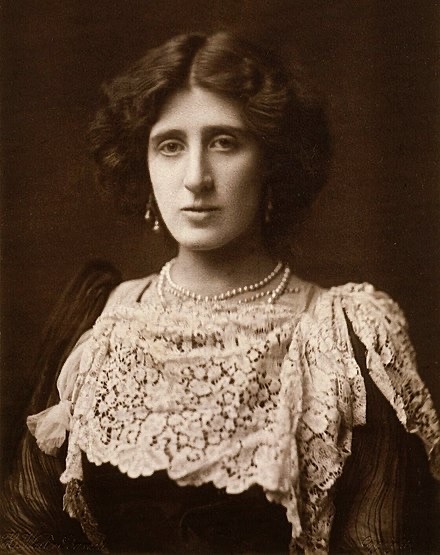
Lady Ottoline Morrell, full name: Lady Ottoline Violet Anne Morrell (16 June 1873 – 21 April 1938) was an English aristocrat and society hostess. Her patronage was influential in artistic and intellectual circles, where she befriended writers including Aldous Huxley, Siegfried Sassoon, T. S. Eliot and D. H. Lawrence, and artists including Mark Gertler, Dora Carrington and Gilbert Spencer.

Dora Carrington, Ralph Partridge, Lytton and Oliver Strachey, and Frances Marshall (later Partridge); snapshot by Lady Ottoline Morrell, 1923

Portrait of Lady Ottoline Morrell by Adolf de Meyer, c. 1912
Her photography
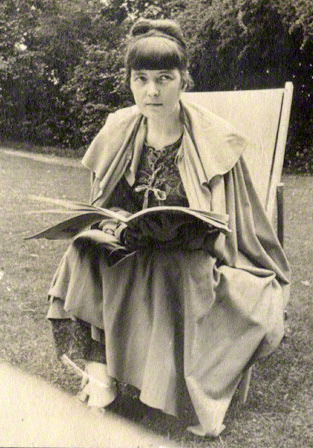
Katherine Mansfield, 1916–17
Kathleen Mansfield Murry (née Beauchamp; 14 October 1888 – 9 January 1923) was a New Zealand writer and critic who was an important figure in the modernist movement. Her works are celebrated across the world, and have been published in 25 languages. Via Wikipedia
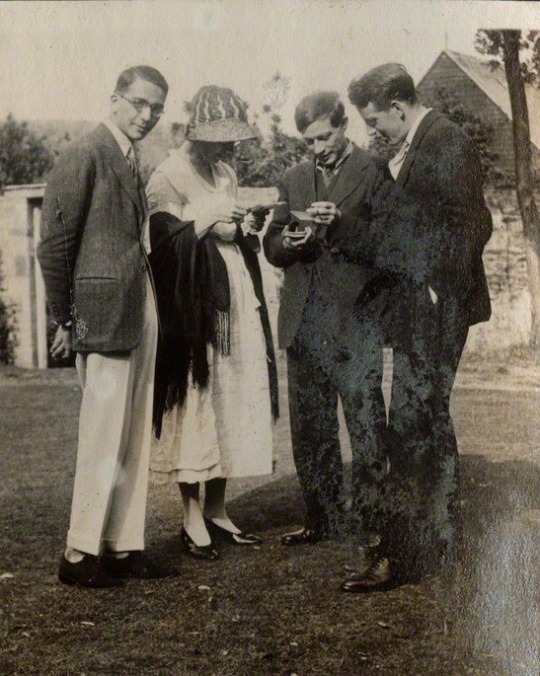
Jean de Menasce, Vanessa Bell, Duncan Grant, and Eric Siepmann, 1922
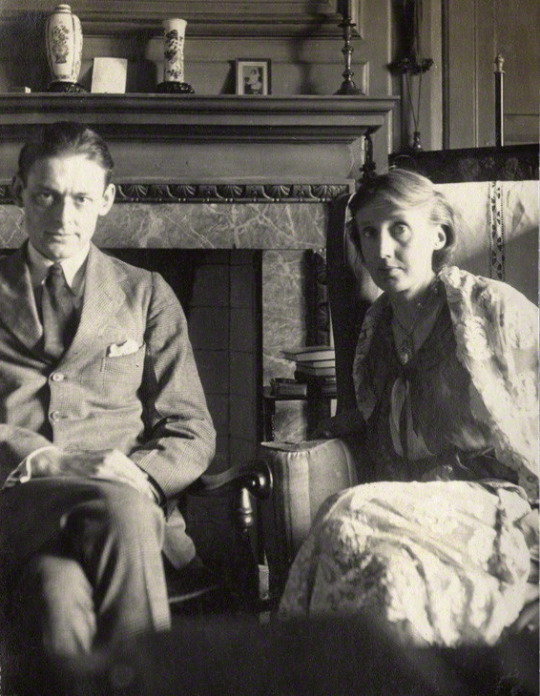
Virginia Woolf and T. S. Eliot, 1924
3 notes
·
View notes
Text

~ T. S. Eliot, "Portrait of a Lady" (1915)
via poetryfoundation.org
#t. s. eliot#thomas stearns eliot#poetry#quotes#poetry quotes#literature#classic literature#lit quotes#literary quotations#classic lit#classic lit quotes#classic literature quotes#modernist literature#literary quotes#quotation#quotations#poem#20th century literature#20th century poetry#british author#british literature#british lit#british poetry#english lit#english poetry#english author#english literature#literature quotes#e
6 notes
·
View notes
Text
'So intimate, this Chopin, that I think his soul / Should be resurrected only among friends / Some two or three, who will not touch the bloom / That is rubbed and questioned in the concert room.'
T. S. Eliot, from: Portrait of a Lady
4 notes
·
View notes
Photo
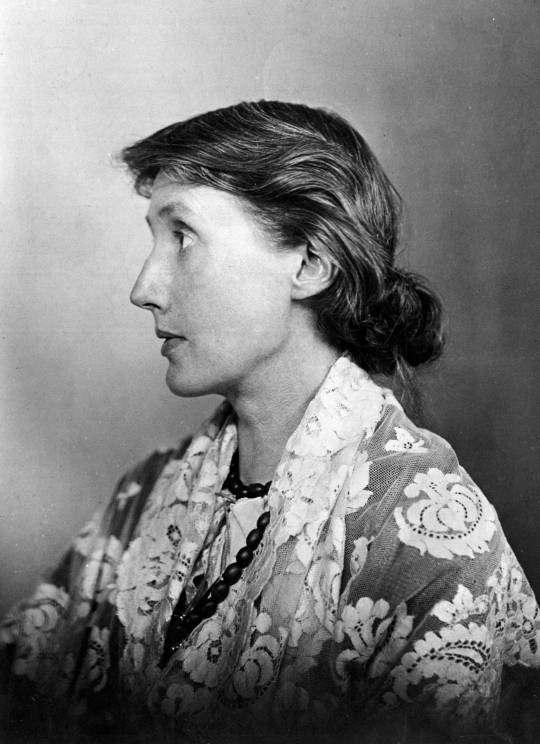
Virginia Woolf (1882–1941)
A prominent modernist writer best known for her novels, essays, diaries, and letters, and for her use of the stream-of-consciousness technique to weave the memories and interior thoughts of her characters into the narrative. As a result, her work is characterized by vibrant portraits of its main characters, and in particular for its nuanced and deep portrayals of the inner lives of women. Woolf wrote about the rapidly shifting technologies and gender roles of the time in which she lived. She also emphasized moving beyond framing experience in terms of binary oppositions, advocating instead for a “perpetual marriage of granite and rainbow” (“The New Biography”) and bringing a more imaginative approach to fiction.
In particular, Virginia Woolf was interested in the idea of biography, and of exploring “an ordinary mind on an ordinary day” (from “Modern Fiction”) rather than people deemed “great” by society. In her essay “The Art of Biography”, Woolf wrote:
“The question now inevitably asks itself, whether the lives of great men only should be recorded. Is not anyone who has lived a life, and left a record of that life, worthy of biography – the failures as well as the successes, the humble as well as the illustrious.”
She ran Hogarth Press, a publishing house, with her husband Leonard Woolf, publishing writers like T S Eliot, Sigmund Freud, Katherine Mansfield, E M Forster, and of course the Woolfs themselves. The couple’s house was a hub for lots of intellectual activity, namely by the Bloomsbury Group, a group of artists, writers, and intellectuals who were massively influential in the early 20th century.
In 1922, after the publication of her novel Jacob’s Room, the first of her more nontraditional works, she wrote in her diary: “There’s no doubt in my mind that I have found out how to begin (at forty) to say something in my own voice, and that interests me so that I feel I can go ahead without praise.” Later that year, she notes further, “At forty I am beginning to learn the mechanism of my own brain – how to get the greatest amount of pleasure and work out of it.” Virginia’s most well-known novels are Mrs. Dalloway (1925) and To The Lighthouse (1927), and one of her best-known essays is “A Room of One’s Own” (1929), a key work of feminist literary criticism that imagines a sister for William Shakespeare and examines the limitations placed on women who make art in comparison to men. She also originated the concept of the “Angel of the House” in her essay “Professions for Women”, a confined figure who must stay at home, perpetuate womanly virtues, and sacrifice for the men of the household; it is thought that this relates to her difficult upbringing, with a father who was both a famous writer and also abusive to Virginia and her siblings.
In terms of Virginia’s personal life, she struggled with depression throughout her life, experiencing multiple nervous breakdowns and periods of deep grief related to the death of her parents and brother. Virginia experienced romantic attachments to several women in her late teens and early twenties, including Madge Vaughan and Violet Dickinson (about whom Virginia wrote in her diary in 1922: “is love the word for these strange deep ancient affections, which began in youth and have got mixed up with so many important things?”). She met and began an affair with Vita Sackville-West around 1924, which eventually culminated in Orlando, a Biography (1928), frequently referred to as “the longest love letter in the English language.”
Ultimately, as World War II’s threat to life in England grew, Woolf found herself unable to write any longer and took her own life in March, 1941. She left her husband, Leonard, this message: “I owe all my happiness in life to you. You have been so perfectly good.”
4 notes
·
View notes
Text
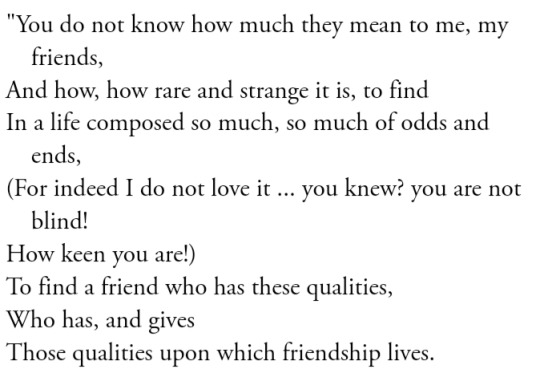
- T. S. Eliot, Portrait of a Lady
3 notes
·
View notes
Text
AMONG the smoke and fog of a December afternoon
You have the scene arrange itself—as it will seem to do—
With “I have saved this afternoon for you”;
And four wax candles in the darkened room,
Four rings of light upon the ceiling overhead,
An atmosphere of Juliet’s tomb
Prepared for all the things to be said, or left unsaid.
T. S. Eliot - Portrait of a lady (excerpt)

1 note
·
View note
Text

#tseliot#ts eliot#thomas stearns eliot#eliot#quote#poem#poems#thomas s eliot#t s eliot#t s eliot portrait#tseliot portrait#ts eliot portrait#thomas stearns eliot portrait#ts eliot poem#t s eliot poem#tseliot poem#thomas stearns eliot poem#tseliot poems#ts eliot poems#t s eliot poems
2 notes
·
View notes
Photo

T. S. Eliot — Portrait of a Lady
#T. S. Eliot#Portrait of a Lady#typography#typographyedit#typo#typoedit#quotes#words#lit#litedit#spring#*
10K notes
·
View notes
Text
Now that lilacs are in bloom
She has a bowl of lilacs in her room
And twists one in her fingers while she talks.
"Ah, my friend, you do not know, you do not know
What life is, you who hold it in your hands";
(Slowly twisting the lilac stalks)
"You let it flow from you, you let it flow,
And youth is cruel, and has no remorse
And smiles at situations which it cannot see."
I smile, of course,
And go on drinking tea.
Yet with these April sunsets, that somehow recall
My buried life, and Paris in the Spring
Portrait of a Lady
T. S. Eliot
2 notes
·
View notes
Video
youtube
"Portrait of a Lady" by T. S. Eliot (read by Jeremy Irons)
I.
Among the smoke and fog of a December afternoon
You have the scene arrange itself — as it will seem to do—
With "I have saved this afternoon for you";
And four wax candles in the darkened room,
Four rings of light upon the ceiling overhead,
An atmosphere of Juliet's tomb
Prepared for all the things to be said, or left unsaid.
We have been, let us say, to hear the latest Pole
Transmit the Preludes, through his hair and finger-tips.
"So intimate, this Chopin, that I think his soul
Should be resurrected only among friends
Some two or three, who will not touch the bloom
That is rubbed and questioned in the concert room."
—And so the conversation slips
Among velleities and carefully caught regrets
Through attenuated tones of violins
Mingled with remote cornets
And begins.
"You do not know how much they mean to me, my friends,
And how, how rare and strange it is, to find
In a life composed so much, so much of odds and ends,
(For indeed I do not love it ... you knew? you are not blind!
How keen you are!)
To find a friend who has these qualities,
Who has, and gives
Those qualities upon which friendship lives.
How much it means that I say this to you —
Without these friendships — life, what cauchemar!"
Among the winding of the violins
And the ariettes
Of cracked cornets
Inside my brain a dull tom-tom begins
Absurdly hammering a prelude of its own,
Capricious monotone
That is at least one definite "false note."
— Let us take the air, in a tobacco trance,
Admire the monuments,
Discuss the late events,
Correct our watches by the public clocks.
Then sit for half an hour and drink our bocks.
II.
Now that lilacs are in bloom
She has a bowl of lilacs in her room
And twists one in her fingers while she talks.
"Ah, my friend, you do not know, you do not know
What life is, you who hold it in your hands";
(Slowly twisting the lilac stalks)
"You let it flow from you, you let it flow,
And youth is cruel, and has no remorse
And smiles at situations which it cannot see."
I smile, of course,
And go on drinking tea.
"Yet with these April sunsets, that somehow recall
My buried life, and Paris in the Spring,
I feel immeasurably at peace, and find the world
To be wonderful and youthful, after all."
The voice returns like the insistent out-of-tune
Of a broken violin on an August afternoon:
"I am always sure that you understand
My feelings, always sure that you feel,
Sure that across the gulf you reach your hand.
You are invulnerable, you have no Achilles' heel.
You will go on, and when you have prevailed
You can say: at this point many a one has failed.
But what have I, but what have I, my friend,
To give you, what can you receive from me?
Only the friendship and the sympathy
Of one about to reach her journey's end.
I shall sit here, serving tea to friends ...."
I take my hat: how can I make a cowardly amends
For what she has said to me?
You will see me any morning in the park
Reading the comics and the sporting page.
Particularly I remark.
An English countess goes upon the stage.
A Greek was murdered at a Polish dance,
Another bank defaulter has confessed.
I keep my countenance,
I remain self-possessed
Except when a street-piano, mechanical and tired
Reiterates some worn-out common song
With the smell of hyacinths across the garden
Recalling things that other people have desired.
Are these ideas right or wrong?
III.
The October night comes down; returning as before
Except for a slight sensation of being ill at ease
I mount the stairs and turn the handle of the door
And feel as if I had mounted on my hands and knees.
"And so you are going abroad; and when do you return?
But that's a useless question.
You hardly know when you are coming back,
You will find so much to learn."
My smile falls heavily among the bric-à-brac.
"Perhaps you can write to me."
My self-possession flares up for a second;
This is as I had reckoned.
"I have been wondering frequently of late
(But our beginnings never know our ends!)
Why we have not developed into friends."
I feel like one who smiles, and turning shall remark
Suddenly, his expression in a glass.
My self-possession gutters; we are really in the dark.
11 notes
·
View notes
Text
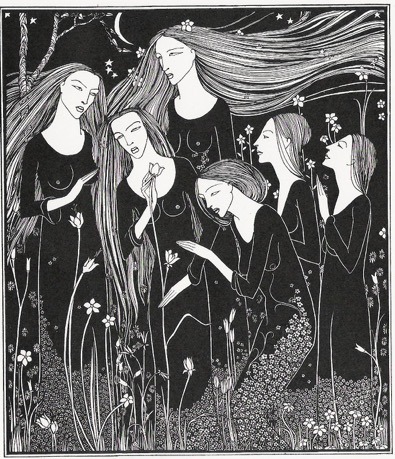
"Now that lilacs are in bloom
She has a bowl of lilacs in her room
And twists one in her fingers while she talks.
"Ah, my friend, you do not know, you do not know
What life is, you who hold it in your hands";
(Slowly twisting the lilac stalks)
"You let it flow from you, you let it flow,
And youth is cruel, and has no remorse
And smiles at situations which it cannot see."
I smile, of course,
And go on drinking tea."
— From "Portrait of A Lady" by T S Eliot [Art by Hannah Frank]
#t s eliot#ts eliot#ts eliot quotes#prufrock and other observations#portrait of a lady#daily poem#poetry#daily poetry#ts eliot poems#hannah frank#hannah frank art#daily art#art noveau#scottish art noveau
5 notes
·
View notes
